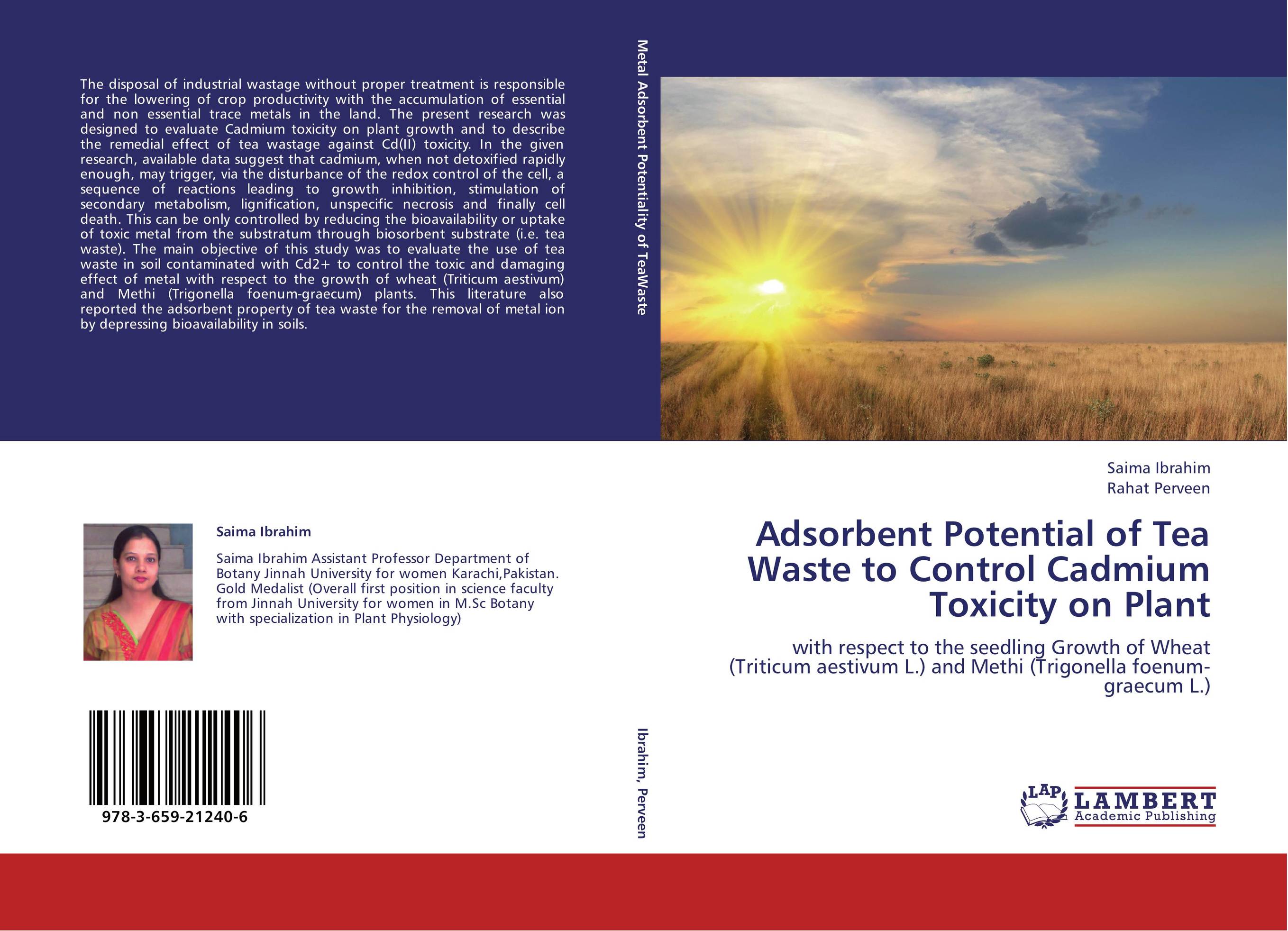| Поиск по каталогу |
|
(строгое соответствие)
|
- Профессиональная
- Научно-популярная
- Художественная
- Публицистика
- Детская
- Искусство
- Хобби, семья, дом
- Спорт
- Путеводители
- Блокноты, тетради, открытки
Adsorbent Potential of Tea Waste to Control Cadmium Toxicity on Plant. With respect to the seedling Growth of Wheat (Triticum aestivum L.) and Methi (Trigonella foenum-graecum L.)

В наличии
| Местонахождение: Алматы | Состояние экземпляра: новый |

Бумажная
версия
версия
Автор: Saima Ibrahim and Rahat Perveen
ISBN: 9783659212406
Год издания: 2012
Формат книги: 60×90/16 (145×215 мм)
Количество страниц: 136
Издательство: LAP LAMBERT Academic Publishing
Цена: 37774 тг
Положить в корзину
| Способы доставки в город Алматы * комплектация (срок до отгрузки) не более 2 рабочих дней |
| Самовывоз из города Алматы (пункты самовывоза партнёра CDEK) |
| Курьерская доставка CDEK из города Москва |
| Доставка Почтой России из города Москва |
Аннотация: The disposal of industrial wastage without proper treatment is responsible for the lowering of crop productivity with the accumulation of essential and non essential trace metals in the land. The present research was designed to evaluate Cadmium toxicity on plant growth and to describe the remedial effect of tea wastage against Cd(II) toxicity. In the given research, available data suggest that cadmium, when not detoxified rapidly enough, may trigger, via the disturbance of the redox control of the cell, a sequence of reactions leading to growth inhibition, stimulation of secondary metabolism, lignification, unspecific necrosis and finally cell death. This can be only controlled by reducing the bioavailability or uptake of toxic metal from the substratum through biosorbent substrate (i.e. tea waste). The main objective of this study was to evaluate the use of tea waste in soil contaminated with Cd2+ to control the toxic and damaging effect of metal with respect to the growth of wheat (Triticum aestivum) and Methi (Trigonella foenum-graecum) plants. This literature also reported the adsorbent property of tea waste for the removal of metal ion by depressing bioavailability in soils.
Ключевые слова: Tea Wastage, Heavy Metal, Stress Indicator, Primary metabolites, Secondary Metabolites, antioxidant activities, PHYTOTOXICITY



